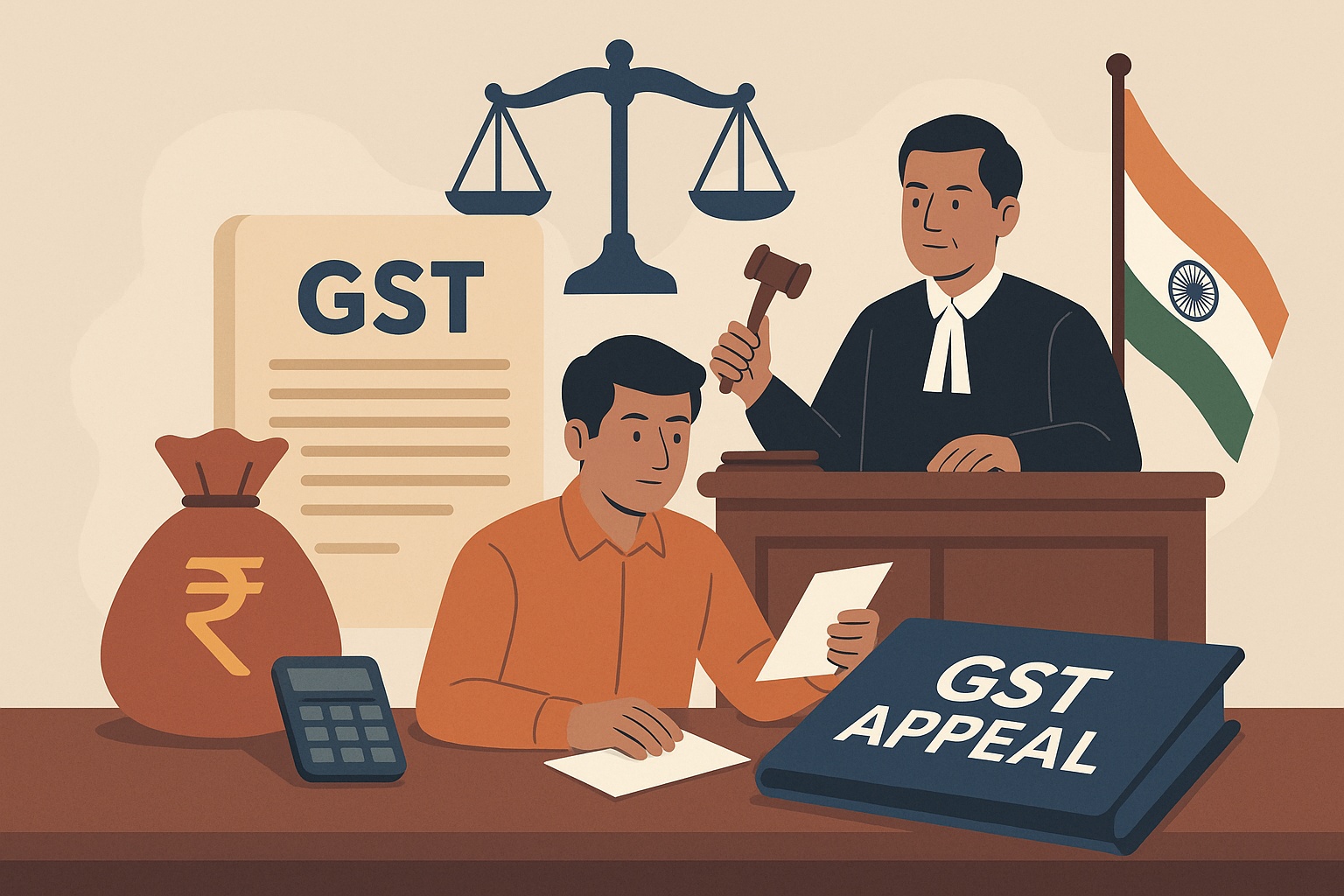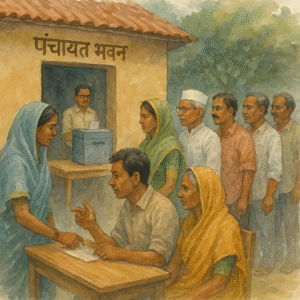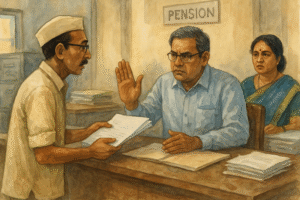The Patna High Court has delivered an important judgment that will help many small businesses and traders whose GST appeals were rejected due to minor delays. In this case, the petitioner— a registered dealer from Saharsa— had challenged an appellate order dismissing its first appeal solely because it was filed five days late. Under Section 107(4) of the Bihar Goods and Services Tax (BGST) Act, an appeal should be filed within three months, with a further one-month grace period for condonation; beyond that, neither the Appellate Authority nor even the High Court under Article 226 can extend time as a matter of power strictly under the statute. The Division Bench, however, examined a later Central Government notification that created a special, one-time route for delayed appeals and granted relief accordingly.
The Court noted that Section 107(4) of the BGST Act strictly limits the time for filing appeals: three months plus a further one month for delayed appeals. The appellate authority had, therefore, rejected the appeal, as it had been lodged five days after even the extended period. On a plain reading of Section 107(4), there is no statutory power in the appellate forum to condone delay beyond that one extra month; similarly, writ courts have repeatedly cautioned themselves against rewriting legislative limitation schemes where the statute is specific. The Bench reaffirmed that position.
At the same time, the High Court took cognizance of a significant development: the Central Board of Indirect Taxes and Customs (CBIC) issued Notification No. 53/2023–Central Tax dated 2 November 2023. The notification, in exercise of powers under Section 148 of the Central Goods and Services Tax Act, 2017, created a special procedure allowing certain time-barred appeals to be filed or revived. The notification covers (i) taxable persons who could not file appeals against orders passed under Section 73 or 74 on or before 31 March 2023 within the normal/extended period under Section 107, and (ii) taxable persons whose appeals were rejected solely for being time-barred under Section 107. It prescribes filing the appeal in FORM GST APL-01 on or before 31 January 2024, subject to specific pre-deposit conditions—namely, payment of admitted dues plus 12.5% of the remaining disputed tax (with at least 20% of that 12.5% paid via the Electronic Cash Ledger and an overall cap of ₹25 crore). The notification also bars refunds of amounts paid until disposal of the appeal and excludes demands not involving tax.
A practical difficulty arose here: the petitioner’s assessment order was dated 27 April 2023—after the notification’s cut-off date of 31 March 2023. Strictly applied, the special window would not cover this case. The Court observed that there was no clear rationale for fixing 31 March 2023 as the cut-off when the notification was itself issued on 2 November 2023. In the Court’s view, at least orders passed within three months before 2 November 2023 (the typical appeal period) ought to have been considered for the same beneficial treatment, because the object of the notification was remedial and facilitative.
Exercising writ jurisdiction to align the case with the special procedure, the Division Bench directed that the petitioner be allowed to comply with Notification No. 53/2023. The impugned appellate order refusing to entertain the appeal on limitation was set aside; the matter was remitted to the first Appellate Authority for fresh consideration on merits, contingent on the petitioner fulfilling the notification’s conditions. If the petitioner failed to comply, the appellate rejection would stand revived and operate. In effect, while the Court respected the statutory limitation under Section 107(4), it used the remedial window opened by CBIC’s notification—interpreted purposively—to prevent a purely technical dismissal where a short delay had otherwise foreclosed appellate scrutiny.
This judgment offers two key takeaways. First, High Courts continue to maintain the integrity of statutory limitation in GST appeals—there is no general power to condone delays beyond what Section 107 permits. Second, when the executive introduces a special, time-bound mechanism to permit delayed appeals, the courts can apply it purposively to achieve fairness, particularly when the appeal was rejected only because of a small delay. As a result, businesses that missed deadlines by narrow margins may find a path back to appellate adjudication, provided they meet the notification’s financial and procedural conditions within its timelines.
Significance or Implication of the Judgment (For general public or government)
For taxpayers and small businesses, this decision provides a practical lifeline. Many honest assessees miss deadlines for reasons such as illness, compliance confusion, or logistical delays. The Court’s approach ensures that such cases are not permanently shut out if a remedial, government-issued window exists. It encourages compliance—appeals must still be properly filed, with substantial pre-deposits—while preventing harsh consequences from brief lapses.
For the tax administration, the ruling balances enforcement with fairness. It does not dilute statutory timelines under Section 107(4); rather, it channels late appeals through a structured, conditional mechanism expressly created by CBIC. This can reduce litigation over condonation and promote quicker resolution on merits, as appellants will be incentivized to deposit a part of the disputed tax and pursue their appeals promptly. Over time, the approach may also improve taxpayer confidence in the GST appellate system, as the focus shifts from procedural defaults to substantive adjudication.
Legal Issue(s) Decided and the Court’s Decision with reasoning
- Whether the appellate authority or the High Court could extend the limitation beyond the one-month condonable period under Section 107(4) of the BGST Act.
Decision: No. The statute prescribes a strict timeline (three months plus one month) and neither the appellate authority nor the High Court can extend it under ordinary principles. - Whether CBIC’s Notification No. 53/2023–Central Tax (dated 2 November 2023) could be invoked for an order passed after the stated cut-off of 31 March 2023.
Decision: Although the notification literally covers orders passed on or before 31 March 2023, the Court found no rational basis for that cut-off when the notification was issued much later. To advance the notification’s beneficial purpose, the Court permitted the petitioner to avail the special procedure notwithstanding the post-cut-off date of the order. - Consequential relief if the special procedure is availed.
Decision: The appellate rejection on the ground of delay was set aside; the matter was remanded for fresh consideration by the first Appellate Authority, conditional on the petitioner fulfilling the notification’s pre-deposit and filing requirements. If the petitioner fails to comply, the earlier order rejecting the appeal revives and continues to operate.
Case Title
M/s Prince Sanitation, Gandhi Path, Ward No. 8, Saharsa through its Proprietor v. The State of Bihar & Ors.
Case Number
Civil Writ Jurisdiction Case No. 17202 of 2023.
Coram and Names of Judges — Always prefix with Hon’ble
Hon’ble the Chief Justice (K. Vinod Chandran) and Hon’ble Mr. Justice Rajiv Roy.
Names of Advocates and who they appeared for
For the petitioner: Mr. Gyan Shankar, Advocate; Mr. Abhinav Alok, Advocate.
For the respondents (State): Mr. Raghwanand, Government Advocate-11; Mr. Pratik Kumar, Assistant Counsel to GA-11.
Link to Judgment
MTUjMTcyMDIjMjAyMyMxI04=-V2afEtbv0IY=
If you found this explanation helpful and wish to stay informed about how legal developments may affect your rights in Bihar, you may consider following Samvida Law Associates for more updates.









